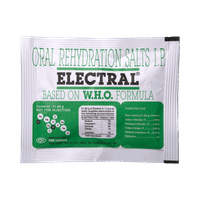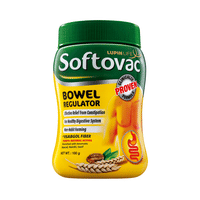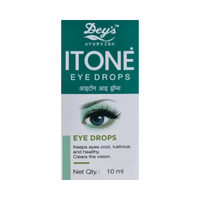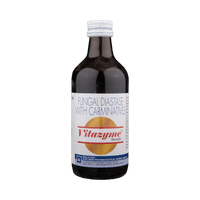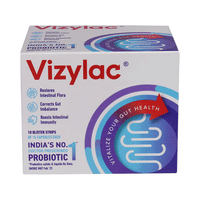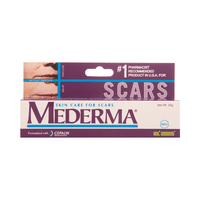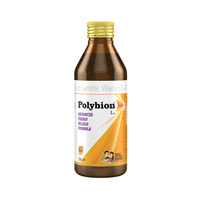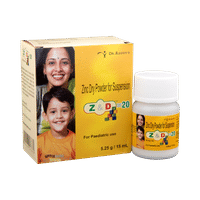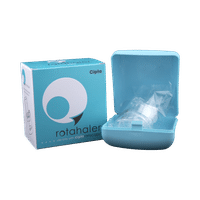food interaction for Oceph Syrup
alcohol interaction for Oceph Syrup
pregnancy interaction for Oceph Syrup
lactation interaction for Oceph Syrup
food
alcohol
pregnancy
lactation
Oceph Syrup may be taken with or without food, but it is better to take it at a fixed time.
None
None
CAUTION
Oceph Syrup may cause excessive drowsiness with alcohol.
UNSAFE
Oceph Syrup is generally considered safe to use during pregnancy. Animal studies have shown low or no adverse effects to the developing baby; however, there are limited human studies.
SAFE IF PRESCRIBED
Oceph Syrup is safe to use during breastfeeding. Human studies suggest that the drug does not pass into the breastmilk in a significant amount and is not harmful to the baby.
Avoid prolonged use of Oceph Syrup, since it may have possible effects such as rash and diarrhea.
Avoid prolonged use of Oceph Syrup, since it may have possible effects such as rash and diarrhea.
SAFE IF PRESCRIBED
SALT INFORMATION FOR Oceph 125mg/5ml Syrup
Cefdinir(125mg/5ml)
Oceph syrup uses
{med_name} is used in the treatment of bacterial infections.
How oceph syrup works
Oceph Syrup is an antibiotic. It works by preventing the formation of the bacterial protective covering (cell wall) which is essential for the bacteria to survive. By doing so, this medicine stops the infection-causing bacteria from growing further and prevents the infection from spreading without making them resistant to further treatment.
Common side effects of oceph syrup
Allergy, Nausea, Diarrhea, Rash, Vomiting, Headache, Dizziness, Itching, Vaginal moniliasis, Abdominal pain, Vaginal inflammation, Dyspepsia, Flatulence, Decreased appetite, Constipation, Abnormal stool, Weakness, Insomnia (difficulty in sleeping), Leukorrhea, Sleepiness, Protein in urine, Increased gamma-glutamyltransferase, High lymphocyte count, Lymphocytopenia, Microhematuria, Increased urine leukocytes
SUBSTITUTES FOR Oceph Syrup
3 Substitutes
3 Substitutes
Sorted By
 Rs. 222pay 139% more per ml of Syrup
Rs. 222pay 139% more per ml of Syrup Rs. 81save 10% more per ml of Syrup
Rs. 81save 10% more per ml of Syrup Rs. 78.30save 14% more per ml of Syrup
Rs. 78.30save 14% more per ml of Syrup
Expert advice FOR Oceph Syrup
- It is essential that your child completes the entire course of antibiotics. Not finishing the full dose of medicine may cause the bacteria to multiply again, become resistant, or cause another infection.
- If your child develops diarrhea as a side effect, encourage him/her to drink plenty of water.
- Conditions like common cold and flu are caused by viruses. Never use this medicine for such conditions.
- Only give Cefdinir to your child for their current infection. Never save medicine for future illnesses.
- Discontinue the medicine and seek immediate help from the doctor if your child develops an itchy rash, facial swelling, or breathing difficulties while taking this medicine.
Frequently asked questions FOR Oceph 125mg/5ml Syrup
Cefdinir
Q. Can Oceph Syrup be given to children who are less than 5 months of age?
No. Safety and efficacy data in neonates and infants less than 6 months of age have not yet been established, so avoid giving it to kids younger than 6 months of age.
Q. Can giving oral nutrition supplements (infant formula) interfere with the absorption of Oceph Syrup?
Infant formula does not cause any significant interference with the absorption of Oceph Syrup. Therefore, this medicine can be given with oral nutrition supplements (infant formula or baby milk).
Q. What will happen if I give an excess of Oceph Syrup to my child?
Even though an extra dose of Oceph Syrup is unlikely to harm. However, if you think you have given too much of Oceph Syrup to your child, immediately speak to a doctor.













